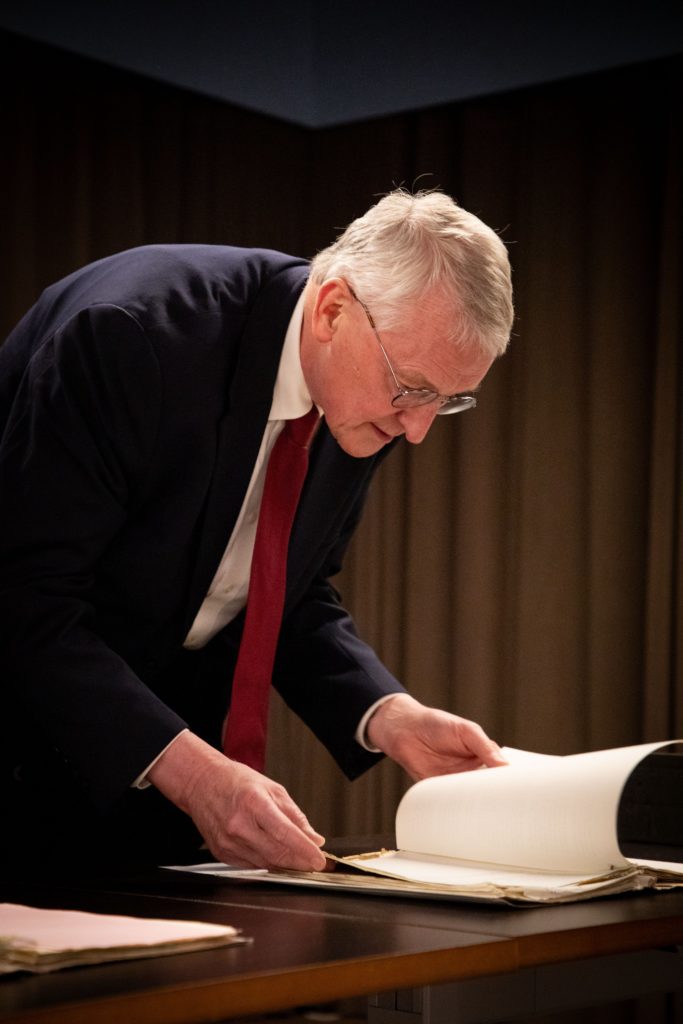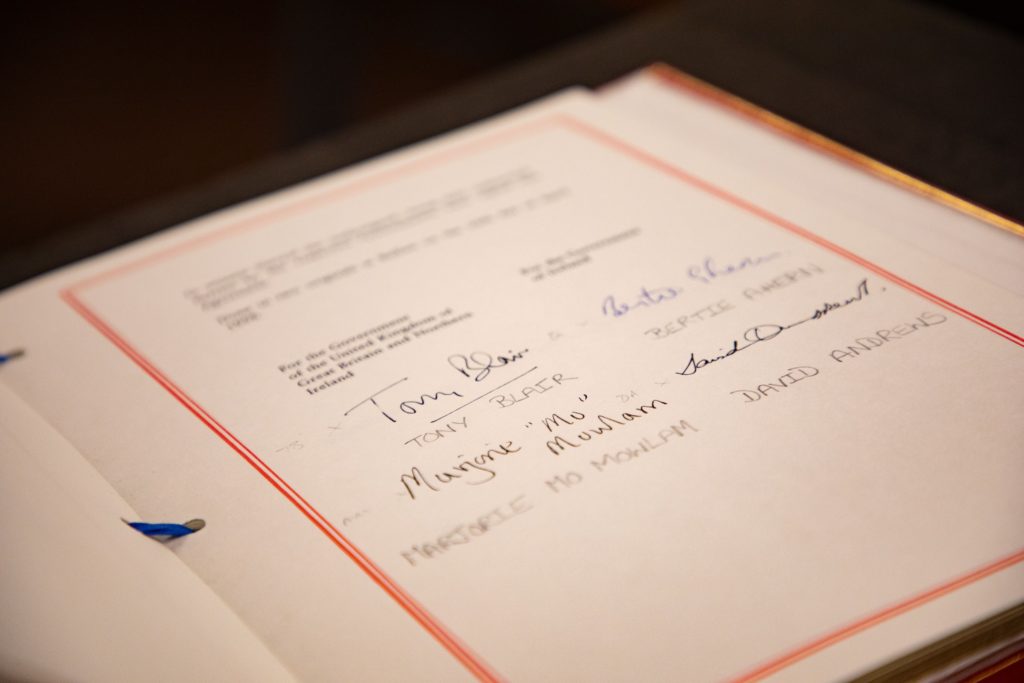TWO new projects have been confirmed by the British Government to provide ‘greater transparency’ on their policies in Northern Ireland during its most turbulent years.
Secretary of State for Northern Ireland, Hilary Benn has outlined the details of two “landmark archival projects” relating to the Troubles.
The projects, which were originally pledged under the previous government, were further confirmed yesterday ahead of the 27th anniversary of the signing of the Good Friday Agreement, which falls today.
Mr Benn made the announcement at the National Archives at Kew, where he viewed the original Good Friday Agreement document.
 Northern Ireland Secretary Hilary Benn viewed the original Good Friday Agreement document at The National Archives at Kew yesterday (Pic: Gov.uk)
Northern Ireland Secretary Hilary Benn viewed the original Good Friday Agreement document at The National Archives at Kew yesterday (Pic: Gov.uk)The first project will see Government records relating to the Troubles digitised and published in collaboration with the National Archives.
“This will broaden access by publishing digital copies of paper records that have previously only been available by visiting The National Archives at Kew, making them free to view online,” a spokesperson for Mr Benn’s office explained.
The second is an archival research project, which will see official historians appointed to research British Government policy towards Northern Ireland during the Troubles period.
These historians will be appointed “following a transparent and independent recruitment process” the spokesperson said, and they will be given “full access to the UK state archives”.
These projects are designed to provide a “unique resource for anyone interested in the history of the Troubles and government policy” the spokesperson added.
“They will seek to build public confidence through greater accessibility and transparency, and provide a deeper understanding of UK Government policy and decision making on Northern Ireland during the Troubles."
 The original Good Friday Agreement document at the National Archives (Pic: Gov.uk)
The original Good Friday Agreement document at the National Archives (Pic: Gov.uk)Mr Benn said the first records in the digitisation project will be publicly available later this year.
“I am pleased to support work by The National Archives to digitise and publish key records relating to this complex period in our history,” he said while visiting the Archives.
“I have seen today examples of the records digitisation process and look forward to the first records in this project being published in the autumn.”
He added: “I am also grateful to members of the academic advisory panel for lending their expertise to the important archival research project, and I have every confidence that they will ensure it is conducted to the highest academic standards.
“Their first task will be to identify highly qualified and independently-minded historians via open competition, and I would encourage anyone interested in this project to find out more on their website.
“Taken together, these projects will provide an invaluable resource for the public, journalists, educational institutions, researchers, and academics, making information about this period in Northern Ireland’s history more accessible, and so making government decision-making more transparent.”
Saul Nassé, Chief Executive of The National Archives, said the project will provide the “widest possible audience” with access to the Troubles related records allowing them to “grow their understanding of this significant period in modern history”.
Professor Caoimhe Nic Dháibhéid and Lord Bew are co-chairs of the government’s independent advisory panel, which will make recommendations on key details of the archival research project, including the selection of the historians who will take part.
“We welcome the Government’s strong commitment to increasing access to state archives, which has been an important part of dealing with the past in many other countries,” they said in a statement.
“The Government has rightly recognised the need for work of this nature to be conducted transparently and independently, and as co-chairs of the expert advisory panel we look forward to engaging with colleagues across the academic community as we collectively seek to further understanding of this important period in our history," they added.

